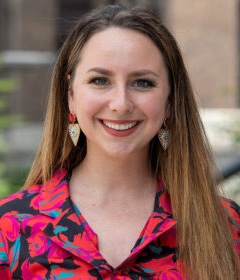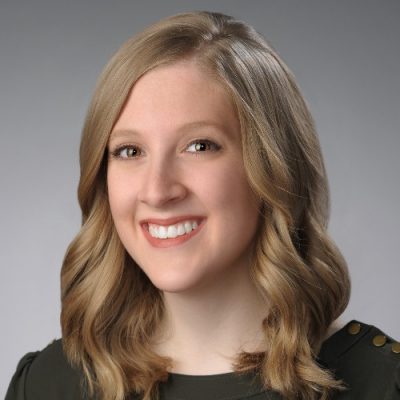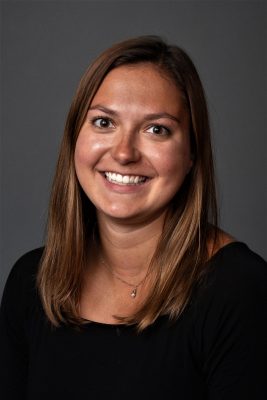One of Syracuse University’s most popular employee benefits is Remitted Tuition, a full tuition waiver for eligible employees and their partners for undergraduate and graduate study.
For employees wishing to advance their careers in higher education administration, using the Remitted Tuition Benefit to pay for a School of Education master’s degree in Higher/Postsecondary Education is a great choice for professional development.
This program enables students to develop their skills in student affairs, while offering a broad understanding of higher education systems, policies, professional organizations, faculty and staff culture, and student learning and development. Typically, the program takes two years of full-time study, or it can be completed part time while the student continues to work on campus.
The School of Education will hold an information session about the Higher Education master’s degree program on Oct. 15, 2024.

But what is it like to both work full time and take this degree program? We interviewed three of the program’s recent graduates to ask how they juggled work and study, why they decided the program was right for them, and how it has benefited their higher education careers.
Shelby Bergen G’23 signed up for the program while an administrative assistant in the College of Law; currently, she is a career advisor in the College of Engineering and Computer Science.
Like Bergen, Carly Signor ’14, G’21 was employed by the College of Law when she entered the master’s program, as Program Coordinator and Communications Manager of the New York State Science and Technology Law Center. Now working at the Office of Admissions, Signor recently was promoted to Associate Director of Admissions.
Sarah Tomlinson G’23 began her Syracuse University career as a temporary office coordinator before moving to the College of Professional Studies’ English Language Institute. After graduating from the Higher Education program, she joined Syracuse University Abroad in March 2024, where she now works as Senior International Program Advisor.
1) Why did you decide to take the Higher/Postsecondary Education master’s degree program, using your Remitted Tuition Benefit?
Shelby Bergen: I like to think I center equity and justice in what I do, so the Higher Education program seemed to be a culmination of all the things I’m passionate about.

Carly Signor: I have such a passion for learning and believe in the value of continued education. The opportunity to pursue this program for free was too good to pass up, especially as I was changing careers and seeking to gain knowledge that would help me succeed in the field of higher education.
Sarah Tomlinson: I started my career at Syracuse in 2018 and knew within a few months that higher education was the career I wanted. In my previous role at the College of Professional Studies, they emphasized the importance of continuing your education and encouraged employees to seek out opportunities through the Remitted Tuition Benefit. When I found the Higher Education program, I knew it would be a perfect to continue to grow my knowledge and passion for the field.
2) How were you able to fit the degree’s coursework and practicum around your full-time work?
SB: If you want complete transparency, it was a bit stressful! Luckily, I had supervisors that valued professional development and this program valued the “non-traditional” student experience by offering flexible class arrangements.
CS: It was definitely challenging, I’m not going to lie, but a little hard work goes a long way. I dedicated time in the evenings and weekends to complete homework. My practicum—you only have to do one as a full-time staff member—was in Athletics, which provided many opportunities for night and weekend hours. My practicum supervisor—Michelle Giordano ’11, G’15, who is also a Higher Education master’s alumna—was incredibly understanding and supportive of the balance I needed to maintain.
ST: Having a full-time job while being in a master’s program is not easy; however, the program really allows for flexibility for part-time students. Most courses are once a week, starting at 4 p.m. The professors work with students to ensure that their schedules meet their needs. Plus, my practicum was a perfect fit for me. At the Stevenson Educational Center for Student Athletes, I met with students outside work hours, and my supervisor allowed me to work on projects during weekends or evenings. Overall, the Higher Education program helps its students every step of the way.
“[The program] is truly built with part-time students in mind. It is a very supportive community and provides foundational knowledge about higher education.”
Sarah Tomlinson G’23
3) What aspect of the program stood out to you?
SB: It sounds nerdy but the literature and classroom structure! We collaborated on assignments and projects a lot, so it was cool to unpack topics in so many unique ways.
CS: The practicum and other hands-on experience, plus research opportunities, mentorship, and campus connections.

ST: The ease of being able to build my schedule around my full-time job. Professor Cathy Engstrom worked with me to ensure that my course plan fit well with my job, including my practicum. Also, the program was very applicable to my career. Being able to take what I learned the night before and apply it next day to my responsibilities demonstrates the tangible knowledge that I acquired. I use what I learned every day in my job.
4) How did receiving the Higher Education master’s degree benefit your career?
SB: I started as a part-time temp and didn’t really know what path to take professionally. However, this degree not only built my community but afforded me many professional opportunities, including my current role!
CS: In a very literal sense, this degree program connected me with my current supervisor—I received a job offer on the very day I graduated. The campus connections I made were invaluable. Additionally, it turned me into a self-proclaimed “data nerd,” and I apply the research skills I learned in my everyday work, enabling me multiple opportunities to present at national conferences.
ST: I use the theories, models, and presentation skills gained from the program in my work. Having an understanding of how universities work and run is deeply beneficial when developing new goals, procedures, and processes. Also, the network I built through the program has been great.
5) What advice would you have for a University colleague thinking of taking the Higher Education master’s while continuing to work?
SB: If you’ve been out of the educational game for a while it can feel intimidating to go back. But know your life experiences are what make you valuable in a program like this. You are worthy of the spaces you’re in.
“This degree program connected me with my current supervisor—I received a job offer on the very day I graduated.”
Carly Signor ’14, G’21
CS: Just do it! The time flies by, and the benefits are so worth it. As a University employee, you’ll find a supportive community and a sense of camaraderie with many Higher Education alums ready to help you along the way—including myself. Take advantage of this opportunity to advance your education and career!
ST: Do it! It may seem daunting at first to be able to juggle a job and a degree program, but it is truly built with part-time students in mind. It is a very supportive community and provides foundational knowledge about higher education. Time management is definitely important though!
